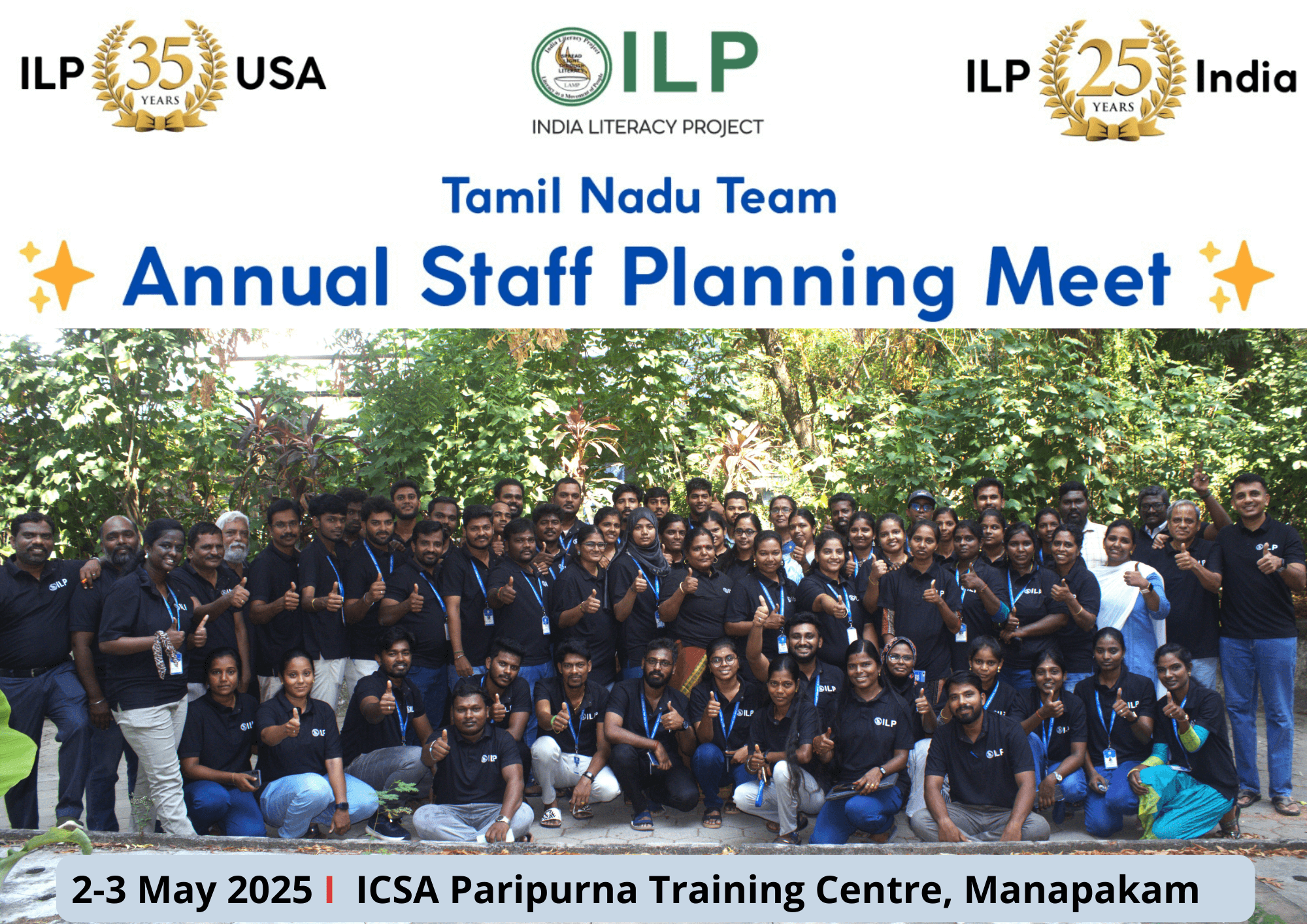As India Literacy Project (ILP) celebrates 35 years in the USA and 25 years in India, this year’s annual meet was not just a milestone—it was a reaffirmation of purpose and a call to prepare for a changing world.
The central theme was clear—ILP is not just about literacy or education, but about enabling people to lead change with every ILPian being a changemaker, not just a passive participant but an active force—driving impact, shaping systems, and reimagining futures. Whether through classroom innovation, nonprofit strategy, or national-scale programs, this belief echoed throughout the sessions.
A recurring theme across sessions was the importance of cultivating a growth mindset—the ability to unlearn, relearn, and remain open to change.
Another undercurrent throughout the meet was the evolving role of technology in education. As AI and electronics reshape how we learn and work, the question is no longer if we adapt, but how quickly and wisely. From SWAYAM’s open AI courses to grassroots-level innovations in classrooms, ILP is not only embracing technology, but actively contributing to its development and application..
This forward-thinking approach was exemplified by the ILP–IITM collaboration that stood out as a symbol of ILP’s future-facing vision—prototyping scalable school innovations aligned with India’s growing focus on electronics and semiconductors.
At the same time, deep listening and data-driven reflection emerged as powerful tools. From monitoring frameworks to frontline stories, there was a strong push toward measuring what truly matters—outcomes that transform lives, not just inputs that fill reports.
Expert-led sessions brought fresh perspectives. Insights into child psychology and development urged a rethink of how we approach education. A math demo showed how intuitive, mentally engaging learning can replace rote steps—opening new possibilities for students and educators alike.
A particularly inspiring moment came from our long-standing partner from IRCDS who shared a deeply personal journey from civil engineering to social development, crediting ILP as a catalyst for his growth and IRCDS’s standing in the sector.
In all, the meet served as a powerful reminder: ILP’s impact is built not just on programs—but on people, ideas, and a shared commitment to continuous transformation.
Special thanks to the experts who shared their insights: Sundar Subramanian, Sheela Sundaresan, Dr. Divya Navamani, Dr. Lavanya A, Sarathi R, Vidya Shankar, Ramkumar T.K., STEPHEN PAUL CRUZ, Govind Raj
Heartfelt thanks to corporate CSR and NGO partners and City Union Bank Ltd., UST, Verizon, Fourrts, Guru Krupa Foundation Inc. and Integrated Rural Community Development Society, Tiruvallur
Note: All government schools that ILP works with are part of Namma School Namma Ooru Palli, an initiative established by the Government of Tamil Nadu to foster community engagement and CSR partnerships.
